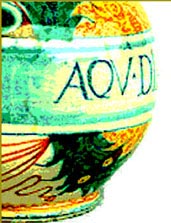| |
|
|
| |
|
|
| |
| Crèdits / Crédits / Credits |
|
|
|
|
|
RECERCA I INNOVACIÓ DOCENTS |
|
|
|
|
|
|
|
|
METODOLOGIA PEDAGÓGICA COMPARADA PARA LA FORMACIÓN DEL FARMACÉUTICO
|

|
|
|
|
Robles, F; Parra, P; Alma X.; Herrera M.; Soto Vázquez, R |
|
|
|
|
RESEÑA |
|
|
El reto actual para las universidades es el de construir una estrategia que permita utilizar el potencial del
conocimiento como un elemento democratizador en la sociedad global con el objetivo de formar el capital humano
apropiado para el desarrollo de todos y cada uno de los países. Las universidades, en esta crisis cultural y académica,
se encuentran en busca del “ethos” universitario que implica la búsqueda de una mayor calidad educativa. La
profesión farmacéutica en América Latina y el Caribe muestran diferencias entre los países. Por lo cual la educación comparada, es una alternativa de gran importancia, para no sólo visualizar las semejanzas sino las diferencias con la
finalidad de establecer gérmenes de cambio a mediano y largo plazo. En este trabajo se analizaron los planes de
estudio en farmacia de 6 países, encontrando que las semejanzas son mayores que las diferencias entre los
conocimientos como lo arrojaron los resultados obtenidos. La intención fundamental fue encontrar los puntos clave
que permitirán la formación profesional del farmacéutico acorde a los criterios internacionales, que le darán la
posibilidad de competencia profesional en la región, ya que a el le corresponde liderear todo lo involucrado con los
medicamentos, y que es responsabilidad de las instituciones de educación superior formadoras, hacer del
farmacéutico el profesional que “más conoce del medicamento y sus efectos”. Conocimiento que cubre desde
producción de de las materias primas necesarias para obtenerlos y que no finaliza con el uso del producto, pues su
labor continúa al darle seguimiento a los efectos de su uso y a vigilar si se obtienen los resultados terapéuticos
deseados en el paciente. La metodología adoptada de Bereday (1987), permitió la comparación y el cumplimiento de
los objetivos, sin embargo no fue la idónea para la determinación de las cualidades que requiere un farmacéutico 7
estrellas. |
|
|
|
|
|
REVIEW |
|
|
The actual challenge of the universities is to build a strategy that allows the utilization of the potential of the
knowledge as a democratizator element in the global society with the objective of forming appropriate human capital
for the development of every country. In this cultural and academic crisis, the universities are looking for the
university “ethos” that implies the search of a mayor educational quality. The pharmaceutical profession in Latin
America and the Caribbean shows differences between the countries. Because of that, the compare education is an
alternative of great importance, not only for visualizing the similarities but also the differences with the purpose of
establishing change germs of short and median term. In this work, the pharmacy study plans of six countries were
analyzed; according to the obtained results, we find that the similarities are more than the differences between the
knowledge. The principal intention was finding the key points that allow the professional training of the pharmacist
according to the international criteria that give the possibility of professional competition in the region; the
pharmacist is in charge of leading everything involved with medicines and is responsibility of the superior education
institutions to convert him into the professional that knows more about the medicine and its effects. This knowledge
covers from the production of the necessary raw materials to obtain the medicines and does not end with the use of
the product because his labor persist giving continuation to the effects of the use and supervising of the therapeutic
desired results are obtained. The methodology adopted by Bereday (1987) allows the comparison and fulfillment of
the objectives; nevertheless, this methodology was not suitable for the determination of the qualities that a seven stars
pharmacists requires. |
|
| |
 |
| |
tornar al sumari |
|
|



